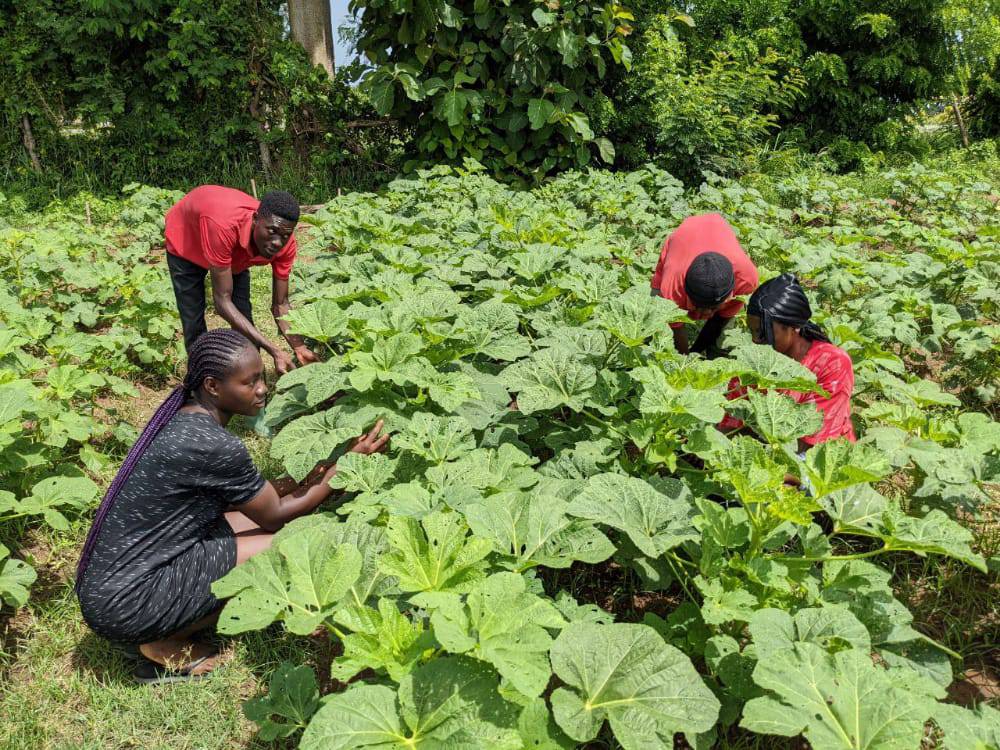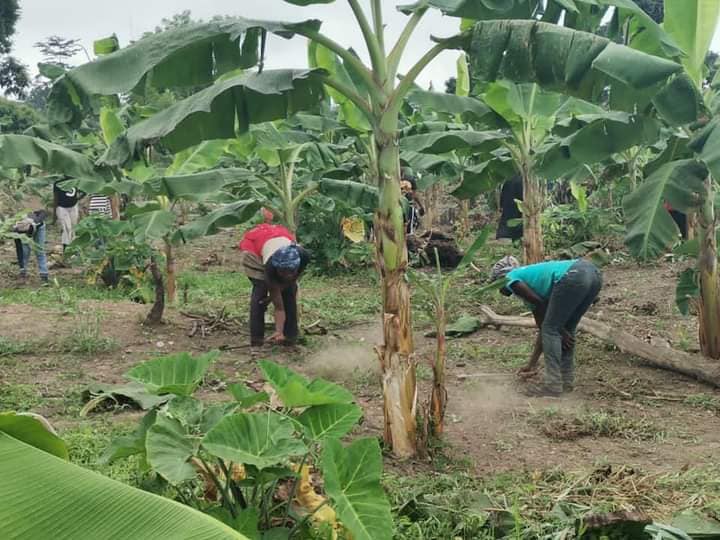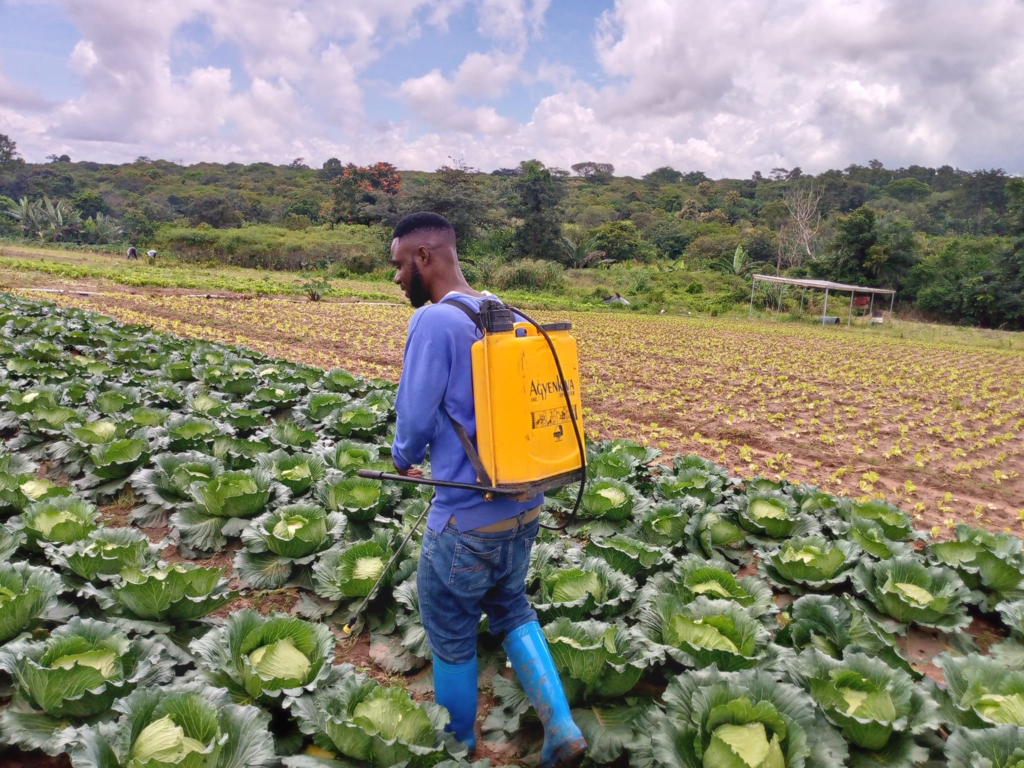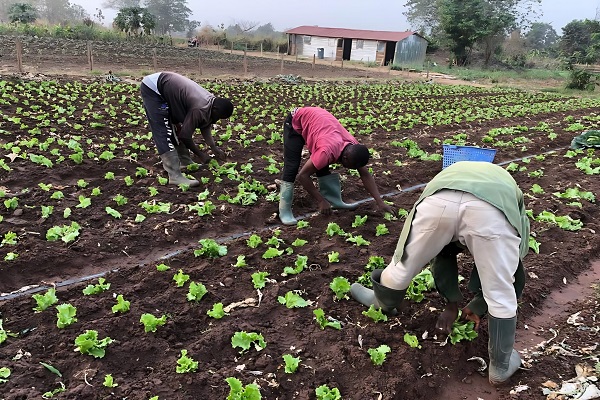The Bono regional chapter of the Tax Justice Coalition Ghana has urged the government to reaffirm its commitment to driving agricultural transformation across Ghana.
A statement signed by the Bono Regional Secretary of Tax Justice Coalition Ghana, Simon Asore, said the current government must have a strategic agenda indicating that it will strengthen partnerships with key national and international agricultural stakeholders.
According to the coalition, the government of the day should be able to demonstrate how it will empower farmers, enhance soil fertility, promote sustainable agricultural practices, and ensure food security for all.
"We expect our politicians to develop expertise in research to develop the appropriate technologies for soil health, farm productivity, and market and food system development.
These, we at the Bono regional chapter of the Tax Justice Coalition Ghana believe could positively change and drive inclusive growth in the agricultural sector,” the statement added.

It said political parties other than the governing New Patriotic Party (NPP) must also develop the appropriate programmes in their manifestos specifying how to address the numerous challenges confronting smallholder farmers.
“We can mention lack of appropriate technologies, expensive but low-quality agricultural inputs, lack of synergies and valuable collaborations as militating against the smallholder,” the statement stressed.
It suggested that the challenges confronting the agricultural value chain actors, especially smallholder farmers, could be fixed through strategic partnerships and a focus on improving the value chain.
"All political parties, including the NPP with their strategies, must create the enabling environment for agricultural stakeholders to use their collective strengths, knowledge and resources to overcome challenges, grasp opportunities and create a better future for farmers in our communities,” the statement noted.

The Bono regional chapter of the Tax Justice Coalition Ghana thought that through collective effort and unwavering commitment, the full potential of agriculture could be realised as a tool for sustainable development and prosperity for the country.
The coalition further urged the government to focus on soil health and the empowerment of the smallholder farmer to address the global food security challenges.
“The key to global food security starts with the soil, so we must strive to develop better organic fertiliser and production technologies, train the smallholder farmers on these improved technologies, and connect the farmers to efficient and profitable markets.

The focus should be collaboration with strategic partners to build local capacity and ensure sustainable impact to help our smallholder farmers improve their livelihoods,” the statement added.
It also said, “One critical aspect the politician must consider is interventions to significantly boost the production of higher quality food by eliminating waste and losses of agricultural water, land, seeds and organic fertilisers”.
The coalition also recommended the promotion of climate-smart and resilient farming systems and technologies among smallholder farmers to reduce the adverse environmental impacts associated with agricultural productivity.
It promised to join the Ghana chapter of the Africa Food Systems Parliamentary Network (AFSPaN) to ensure that the government allocates adequate resources to the agricultural sector to help improve food security.
“We are keenly following Ghana’s performance under the Comprehensive Africa Agriculture Development Programme (CAADP) to ensure the government meets the targets set.
Under CAADP, African governments are required to commit up to 10 percent of their Gross Domestic Product (GDP) to agriculture.
The statement noted that the government should increase support for smallholder farmers because it is the best choice to transform agriculture from its peasant nature through middle to large-scale agribusiness.
The coalition expressed dissatisfaction about the failure of many agricultural programmes initiated by the government, attributing it to lack of access to resources by the people who make farming part of their passion.
“Ghana is well-endowed naturally to make agriculture the foundation for national development through investment in agro-processing, proper packaging of agricultural products for exports, training of the youth in agri-business among others," he said.
Latest Stories
-
UNICEF and REMAPSEN host World Health Day webinar
42 minutes -
Kumasi ready to buzz with Luv FM Family Party in the Park
53 minutes -
Catholic Bishop of Goaso Diocese solicits stakeholder collaboration to ensure peace
1 hour -
9 devastating student deaths that sent shockwaves across the country
1 hour -
Heal Komfo Anokye Project advances to second phase
1 hour -
No more direct refund for 1st-year university students under “No-Fee Stress” policy – Apaak
1 hour -
Kaakie was talented but didn’t have time for music – JMJ
2 hours -
Expert calls for urgent investment in neonatal health in West and Central Africa
2 hours -
Weija-Gbawe MP threatens legal action against ECG over persistent ‘dumsor’ in his constituency
2 hours -
Kwahu Business Forum will empower MSMEs, enhance economic growth, says ADB MD
2 hours -
Weija-Gbawe residents demand urgent action from ECG over persistent power outages
3 hours -
Searching for mobile phone signal – How Sanguli residents struggle with poor network
3 hours -
British High Commission supports Nigerian Rugby with international standard rugby Kits
4 hours -
Revenue Assurance and Compliance Enforcement: The Role of SML in Ghana’s Petroleum Sector
5 hours -
Division One League: Hohoe United petitions GFA over referee Emmanuel Asare
6 hours

